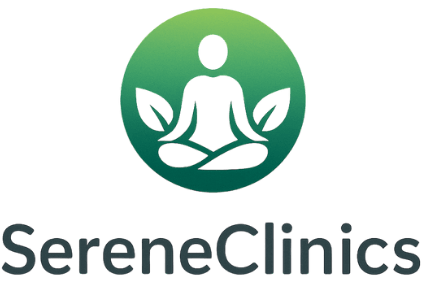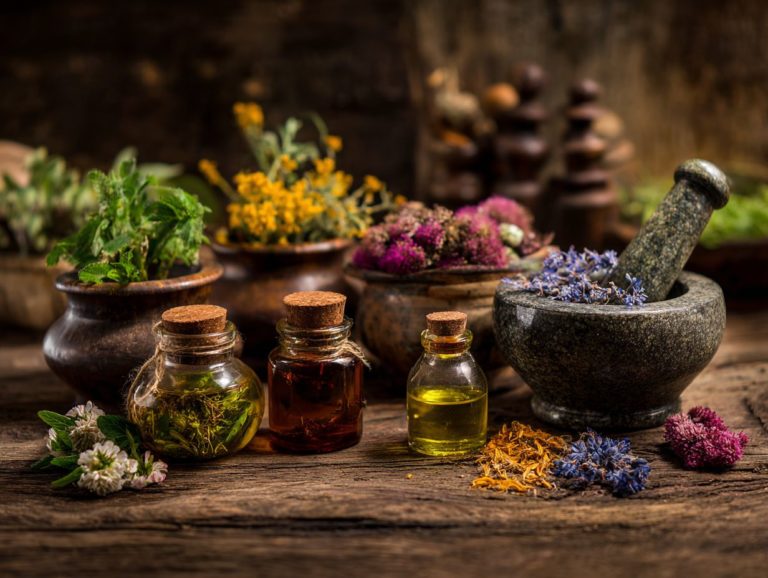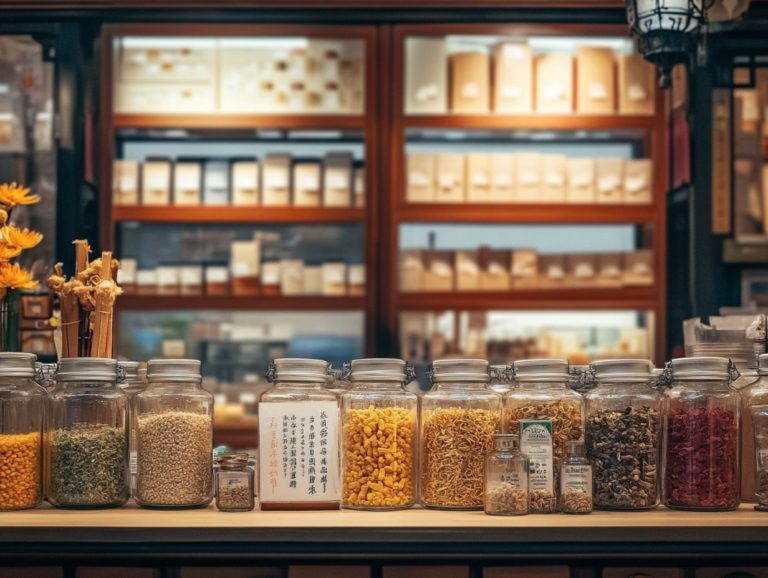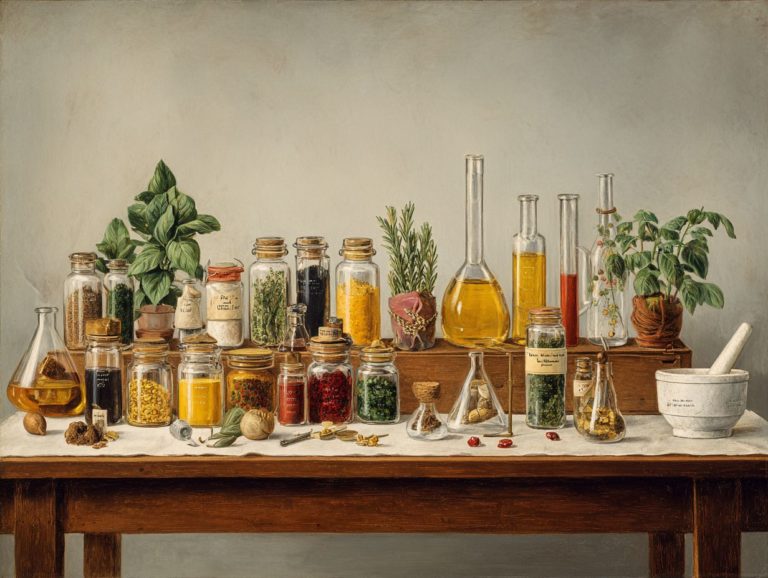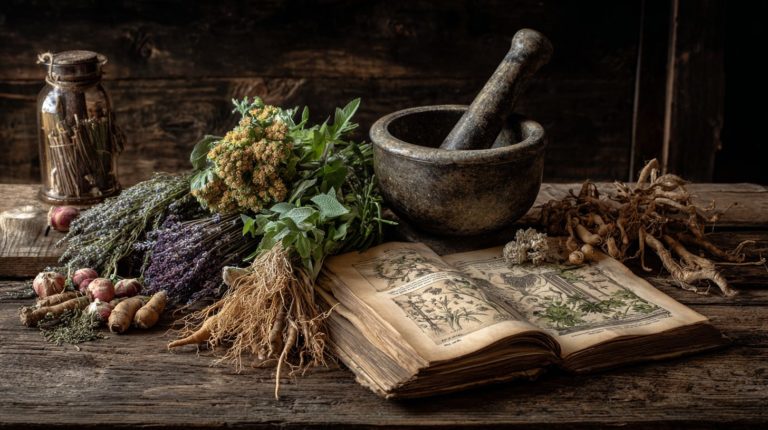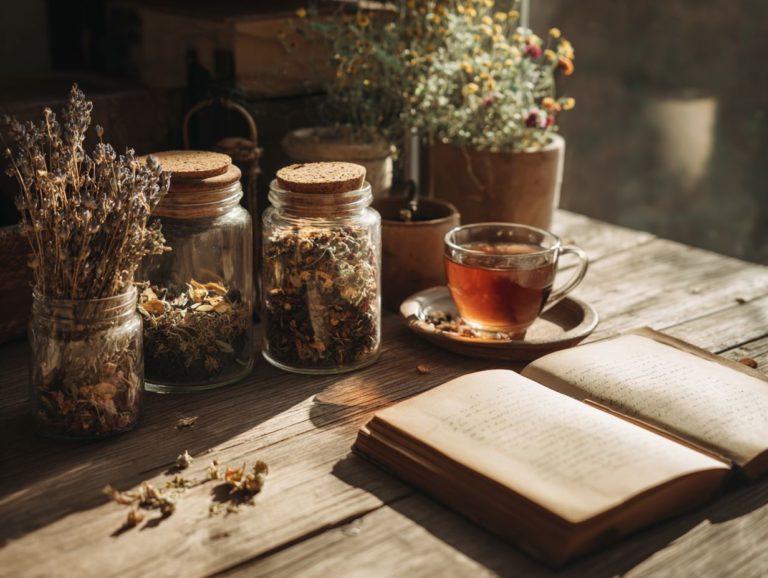How to Use Herbal Medicine Safely: Beginner’s Guide
Learn how to use herbal remedies safely with our beginner’s guide. As interest in natural approaches to health care grows, many turn to herbal products found on platforms like Amazon. However, dealing with this area calls for knowing about safety, quality, and effectiveness-especially since the FDA doesn’t oversee these dietary supplements in the same way as medicines. This guide will give you the basic knowledge you need to confidently learn about herbal remedies while focusing on your health.
Key Takeaways:
Contents
- 1 Herbal Medicine Usage Statistics
- 2 Understanding Herbs and Their Uses
- 3 Safety Considerations
- 4 How to Choose the Right Herbal Remedies
- 5 Methods of Preparation
- 6 Dosage and Administration
- 7 Monitoring Effects and Adjustments
- 8 Frequently Asked Questions
- 8.1 What is herbal medicine and why is it important to use it safely?
- 8.2 How can I make sure herbal medicine is safe for beginners?
- 8.3 What are some common side effects of using herbal medicine?
- 8.4 Is it safe to take herbal medicine with prescription drugs?
- 8.5 Are there any precautions I should take when using herbal medicine?
- 8.6 What are some trusted sources for information on herbal medicine?
What is Herbal Medicine?
Herbal medicine involves using substances from plants to treat health issues. This includes remedies like teas, extracts, and capsules.
Herbal remedies are commonly available in various forms, each serving unique purposes.
For example, herbal teas, like chamomile and peppermint, are popular for their calming effects and digestive benefits, respectively.
Extracts, such as echinacea tinctures, are often used to support immune health, while capsules, like turmeric supplements, provide concentrated doses of active ingredients that may help reduce inflammation.
You can use these products as dietary supplements, but be careful if you are pregnant or using other medications.
Herbal Medicine Usage Statistics
As noted by the World Health Organization, traditional medicine, including herbal remedies, has a long history of contributing to conventional medicine and continues to hold promise in modern healthcare. Their feature on traditional medicine highlights these contributions and ongoing potential.
Herbal Medicine Usage Statistics
Recent developments in traditional medicine are gaining traction, with many experts highlighting its potential to complement conventional treatments. The World Health Organization has been at the forefront of this movement, as evidenced by their recent Global Summit on Traditional Medicine, which emphasized the importance of integrating scientific evidence into traditional practices. This approach not only validates the efficacy of these treatments but also ensures they are safely incorporated into modern healthcare systems. As more healthcare providers consider incorporating these methods, understanding the role of [licensed naturopathic doctors](https://sereneclinics.com/holistic-health/holistic-medicine/naturopathy/naturopathic-doctors-education/) becomes pivotal to effectively merging traditional and modern practices.
Herbal Medicine Usage and Market Trends: Prevalence of Herbal Medicine Use
Herbal Medicine Usage and Market Trends: Market and Financial Statistics
Herbal Medicine Usage and Market Trends: Adverse Effects
The Herbal Medicine Usage Statistics Give a detailed summary of global trends, market changes, and possible dangers linked to the use of herbal medicines. Herbal medicine, which includes traditional practices and supplements, remains a significant component of healthcare systems, particularly in developing regions.
Herbal Medicine Usage and Market Trends highlight key usage patterns: In the U.S., 42% of adults were using herbal supplements in 2020, indicating a substantial segment of the population exploring alternative or complementary medicine. Even more pronounced is the prevalence in developing countries, where 80% of adults rely on herbal medicine for healthcare purposes due to accessibility and cultural practices. Furthermore, 20% of the global population uses Traditional Chinese Medicine, illustrating its broad acceptance and integration into various healthcare systems worldwide.
- Market and Financial Statistics: The herbal medicine market demonstrates strong growth, increasing from $135 billion in 2022 to a projected $249.5 billion by 2032. This expansion reflects rising consumer interest, awareness of natural health benefits, and increased availability of herbal products. Specific segments like the ginseng market are also noteworthy, with a $3.7 billion valuation in 2020, highlighting the popularity and commercial potential of particular herbs.
Adverse Effects: Despite the widespread use of herbal medicine, potential risks exist. 15% of the population experiences adverse reactions to herbal remedies, underscoring the need for informed usage and regulatory guidelines. Additionally, 35% of people who use both herbal and prescription drugs experience interactions, emphasizing the importance of consulting healthcare professionals to prevent harmful effects.
The Herbal Medicine Usage Statistics highlight the increasing importance of herbal medicine in worldwide healthcare, influenced by traditional practices and industry growth. However, careful use and knowledge of harmful effects are important for safety and effectiveness. As the market changes, both consumers and healthcare providers will need to focus on learning about herbal medicine and including it in larger healthcare systems.
History and Cultural Significance
Herbal medicine has deep historical roots, with practices like Ayurveda and Traditional Chinese Medicine dating back thousands of years and shaping cultural approaches to health.
For hundreds of years, herbs have been important in healing methods around the world.
For example, Ayurveda, originating in India, emphasizes balancing bodily energies through herbs like ashwagandha and turmeric. Similarly, Traditional Chinese Medicine uses ginseng and licorice root to restore harmony. For an extensive analysis of these practices, our comprehensive study on Traditional Chinese Medicine principles delves into their core concepts and applications.
These practices offer treatments and are connected with cultural beliefs and rituals, showing their importance.
As people look for natural treatments, the growing interest in herbal medicine reflects a shift towards health practices that honor ancient traditions.
Understanding Herbs and Their Uses
Learning about the specific qualities and uses of herbs is important for anyone interested in using herbal medicine for better health.
Common Herbs and Their Benefits
Certain well-known herbs like Kava and St. John’s Wort are known for their health benefits, including reducing stress and improving mood.
Along with Kava and St. John’s Wort, consider incorporating the following herbs into your wellness routine:
- Ashwagandha: Known for reducing anxiety; a typical dose is 300-500 mg of extract daily.
- Lavender: Often used in aromatherapy for relaxation; try 2-3 drops of essential oil in a diffuser.
- Chamomile: Helpful for sleep; consume as tea (1-2 cups) before bedtime.
Recent studies suggest that these herbs improve mental health and overall well-being when used regularly.
Forms of Herbal Medicine
Herbal medicine can be administered in various forms, including teas, tinctures, capsules, and creams, each with unique applications and benefits.
Teas, such as peppermint or ginger, are great for digestion and can be easily prepared at home.
Tinctures provide a strong form of herbs, which are great for those looking for an effective treatment. For example, echinacea tincture can help strengthen the immune system.
Capsules provide convenience, perfect for people on the go, with turmeric capsules supporting anti-inflammatory needs.
Creams, like arnica for muscle soreness, offer targeted topical relief.
Each form has pros and cons:
- Teas need to be prepared,
- Tinctures can taste intense,
- Creams might leave residues,
yet each has its own benefits.
Safety Considerations
Safety in herbal medicine is important because improper use can lead to harmful effects or interact with other drugs. As mentioned, understanding the principles and practices of Traditional Chinese Medicine can provide insights into how herbal remedies should be properly utilized.
Consulting with Healthcare Professionals
It’s important to talk to a knowledgeable healthcare professional before adding herbal remedies to your health routine, especially if you have existing health issues.
When choosing an experienced herbal practitioner, review their education and previous experience. Ask about their training, the specific herbalist programs they’ve completed, and how many years they’ve been practicing.
It’s important to inquire if they have experience with your particular health issues. Request references or patient testimonials to assess their effectiveness and approach.
A competent practitioner should work with your main doctor to create a complete and safe plan based on your health requirements.
Potential Side Effects and Interactions
Awareness of potential side effects and interactions with conventional medications is essential for anyone using herbal products.
Yohimbe, taken from the African Yohimbe tree, might cause side effects like a faster heartbeat, feeling anxious, or stomach issues. Notably, it can interact with medications like antidepressants or blood pressure drugs.
A recorded case described a serious high blood pressure emergency when combined with an SSRI. Always consult healthcare professionals before starting any herbal regimen, and consider researching reliable sources such as the National Center for Complementary and Integrative Health, which provides scientifically-backed information on herbal products. Additionally, for those interested in a comprehensive overview, this analysis by Mayo Clinic covers the interactions between herbal supplements and heart medications thoroughly.
Quality and Sourcing of Herbs
Checking the quality and safe sourcing of herbs is essential to improving their effectiveness and reducing contamination risks.
To identify high-quality herbs, look for those certified by reputable organizations, which may include USDA Organic or ISO certifications. These indicators confirm that farming follows correct methods and safety rules.
Sourcing from established suppliers like Mountain Rose Herbs or Starwest Botanicals can mitigate risks, as they have stringent quality control processes.
When purchasing herbs, request a Certificate of Analysis (COA) to verify purity and potency. Careful sourcing prevents contamination and improves the healing effects of herbs in your practice.
How to Choose the Right Herbal Remedies
Picking the correct herbal treatments involves thinking about your health needs and the characteristics of the herbs you can choose from.
Assessing Your Health Needs
Figuring out your specific health requirements is the first step in choosing herbal treatments that fit your personal circumstances.
- Begin by identifying specific symptoms you are experiencing, such as fatigue, headaches, or digestive issues.
- Document these in a health journal, noting their frequency and intensity.
- Next, consider any underlying health conditions like diabetes or hypertension, which may influence your choice of remedies.
- For instance, if you suffer from anxiety, herbs like chamomile or passionflower could be beneficial, while those with high blood pressure might look into hawthorn or garlic supplements.
- Regularly review your journal to track progress and adjust your herbal approach as necessary.
Researching Herbal Options
Researching herbal options involves exploring credible sources to understand the efficacy and safety of various herbal treatments.
Start with reliable sources like NIH MedlinePlus and ConsumerLab.com, which provide peer-reviewed studies and safety data on herbal remedies.
Focus on specific herbs such as echinacea for immune support or turmeric for its anti-inflammatory properties.
Always double-check results from these trusted databases to make sure they are correct. It’s also wise to consult healthcare professionals familiar with herbal medicine before beginning any treatment, ensuring it won’t interact with existing medications.
Talking to local herbalists can give practical knowledge about good ways to use herbs.
Methods of Preparation
Learning about various ways to make herbal remedies can improve how well they work and suit individual tastes.
Teas and Infusions
Teas and infusions are popular and accessible forms of herbal medicine, offering a simple way to extract beneficial compounds from plants.
To make herbal teas, start by selecting your herbs. Common choices include:
- Chamomile for relaxation
- Peppermint for digestion
- Ginger for its anti-inflammatory properties
Use 1 to 2 teaspoons of dried herbs per cup of boiling water. Steep for 5 to 10 minutes-longer steeping extracts more flavor and nutrients.
To improve flavor, consider adding some honey or lemon, which also offer health benefits. Always experiment with different combinations to find what suits your palette and needs best.
Tinctures and Extracts
Tinctures and extracts are strong herbal mixtures that provide powerful amounts of important substances in liquid form.
To prepare tinctures, you can choose between an alcohol-based method or a glycerin-based method.
-
For alcohol, use vodka with at least 40% alcohol by volume to cover the herbs. Let it sit in a cool, dark place for 4-6 weeks, and shake it from time to time.
-
For glycerin, mix vegetable glycerin with water (1:1) and steep herbs for about 6-8 weeks, stirring regularly.
Dosage typically ranges from 1-3 dropperfuls, depending on the herb’s potency.
Store tinctures in dark glass bottles; alcohol-based versions last 1-3 years, while glycerin versions are best used within a year.
Capsules and Powders
Capsules and powders provide easy ways to add herbs to your daily routine.
When considering capsules versus powders, each has its benefits. Capsules are easy to use. They give you the exact amount you need without measuring, which is great for people with busy schedules.
Powders can be mixed into smoothies or baked goods, providing versatility in consumption. To measure doses accurately, use a digital scale for powders to make sure you include the right amount in your meals.
For those who prefer powders, starting with a teaspoon may help gauge your preferred dosage, adjusting as needed based on your body’s response.
Dosage and Administration
Correct amounts and use of herbal treatments are important for gaining the most advantages and lowering the chances of negative effects.
Understanding Dosage Guidelines
Knowing how much to take helps use herbal remedies safely. Suggested amounts often depend on a person’s age, weight, and health.
To interpret dosage instructions effectively, always check for age and weight conversions, as these can significantly impact the appropriate dosage.
For instance, a common herbal remedy like Echinacea might have a standard dosage of 300 mg for adults, but only 150 mg for children.
Use trustworthy sources like the Memorial Sloan Kettering Cancer Center’s Herbal Database for correct details. Watching for any side effects and slowly changing doses, with a healthcare professional’s guidance, is important for safe use.
This careful method encourages effective and responsible use of herbs.
Timing and Frequency of Use
Timing and frequency of herbal remedy administration can significantly influence their effectiveness and compatibility with daily routines.
For optimal absorption, consider the following timing strategies:
- Take nettle, which is high in iron, in the morning on an empty stomach to improve absorption.
- For digestive issues, peppermint is best taken 30 minutes after meals, allowing it to aid digestion without interfering with nutrient absorption.
- Conversely, calming herbs like chamomile should be enjoyed in the evening to promote relaxation before sleep.
Stick to a regular schedule for the best results, as this helps your body recognize and get used to the herbal remedy’s effects.
Monitoring Effects and Adjustments
By tracking how herbal remedies work, people can adjust their use to improve health and stay safe.
Keeping a Health Journal
Keeping a health journal is a powerful tool for tracking progress and effects of herbal remedies, helping identify what works best for individual needs.
To maximize the effectiveness of your health journal, include specific details such as the dosage and timing of each herbal remedy you take. For instance, note the hours you take echinacea (e.g., 300 mg at 8 AM and 8 PM) and observe any immediate effects.
Document your overall health observations, such as energy levels, mood changes, or side effects. Consider using a tool like Evernote or a simple spreadsheet to organize your entries, making it easier to see patterns over time.
When to Seek Professional Help
It’s important to know when to ask for professional help if you experience negative effects or have health worries while using herbal treatment.
If you have ongoing side effects like nausea, dizziness, or allergic reactions that don’t go away, talk to a healthcare professional.
If you are using multiple herbal products at the same time, check for interactions that could increase side effects. Talk to a doctor or a certified herbalist.
Consider bringing a complete list of all herbs and dosages you are using to your appointment. This will help your healthcare provider learn about your case and give you specific advice.
Final Thoughts on Safe Herbal Medicine Use
Focusing on consumer safety and providing information helps people have a positive experience with herbal medicine in their health choices.
To improve safety, talk to experienced herbalists or medical professionals before beginning any new routine.
Research the specific herbs you’re considering; for instance, St. John’s Wort can interact with prescription medications, while ginger is great for digestion but may cause issues if you have certain conditions.
Use resources like the American Herbalists Guild for reliable information. Choose products checked by independent testers to confirm they are clean and correctly labeled.
This careful method will guide you in using herbal medicine properly.
Frequently Asked Questions
What is herbal medicine and why is it important to use it safely?
Herbal medicine is the use of plants and plant-based substances to treat and prevent illness. It has been used for centuries and continues to be a popular alternative to conventional medicine. It is important to use herbal medicine safely to avoid potential side effects and interactions with other medications.
How can I make sure herbal medicine is safe for beginners?
The safest approach to using herbal medicine is to gather information and talk to a healthcare provider before trying any herbs. You should also follow proper dosage instructions and be aware of potential allergies and drug interactions.
What are some common side effects of using herbal medicine?
Some common side effects of using herbal medicine include upset stomach, headaches, and allergic reactions. It is important to monitor your body’s response to herbs and stop using them if you experience any negative effects.
Is it safe to take herbal medicine with prescription drugs?
Talk to a healthcare professional before using herbal medicine if you are taking prescription medication. Some herbs may interact with certain medications, causing potential side effects or reducing the effectiveness of the medication.
Are there any precautions I should take when using herbal medicine?
As with any medication, it is important to take precautions when using herbal medicine. This includes being aware of potential allergies and drug interactions, following proper dosage instructions, and purchasing herbs from reputable sources.
What are some trusted sources for information on herbal medicine?
Some trusted sources for information on herbal medicine include qualified healthcare professionals, reputable websites and books, and scientific journals. It is important to gather information from multiple sources and verify their credibility before using any herbs.

Sheetal Sharda has a background in CS. She got an interest in Holistic living back in 2018, and has since started exploring more into Naturapathy, Holistic Living, Yoga, and more. She got inspired to start SereneClinics to help people find reliable centers across the world.
